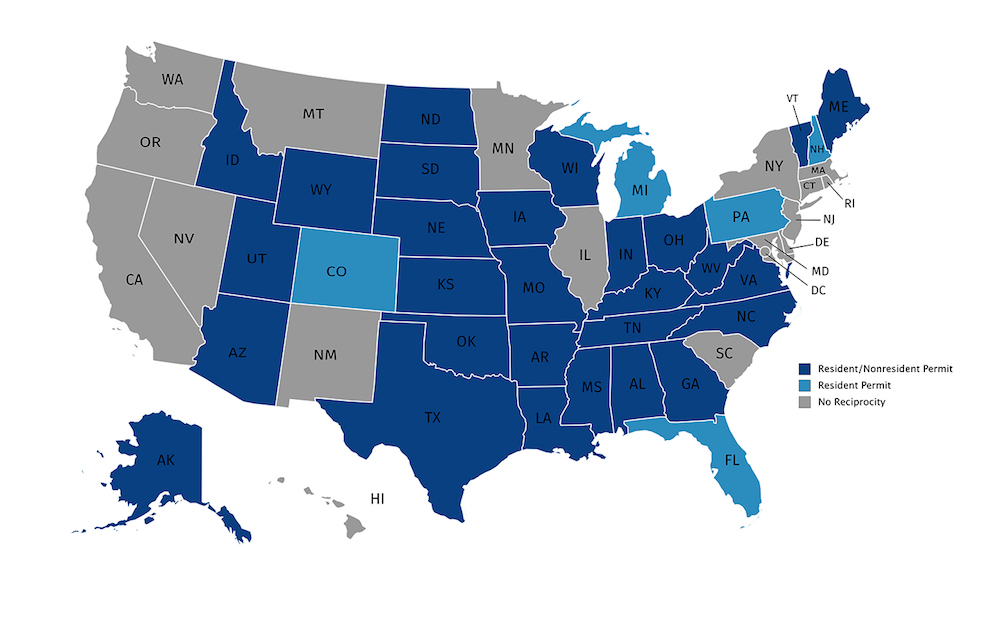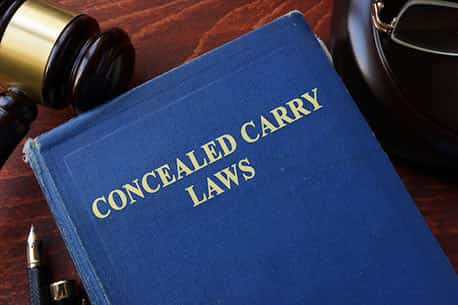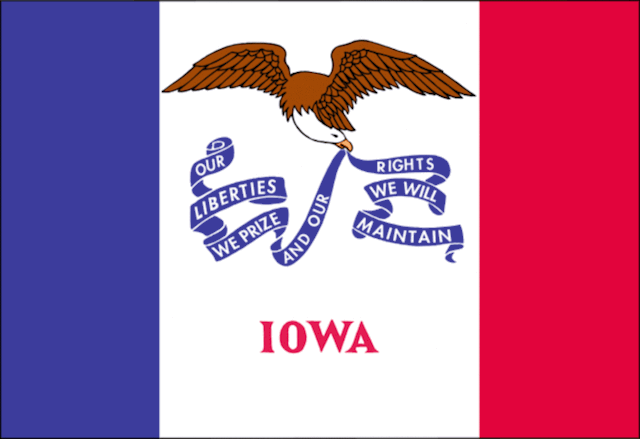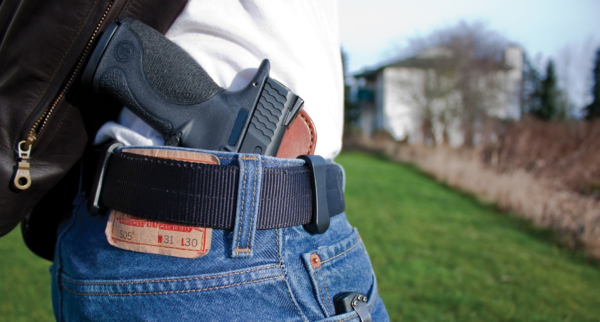Navigating the Landscape of Iowa’s Concealed Carry Laws: A Comprehensive Guide
Related Articles: Navigating the Landscape of Iowa’s Concealed Carry Laws: A Comprehensive Guide
Introduction
With enthusiasm, let’s navigate through the intriguing topic related to Navigating the Landscape of Iowa’s Concealed Carry Laws: A Comprehensive Guide. Let’s weave interesting information and offer fresh perspectives to the readers.
Table of Content
Navigating the Landscape of Iowa’s Concealed Carry Laws: A Comprehensive Guide

The right to bear arms is a fundamental principle enshrined in the Second Amendment of the United States Constitution. However, exercising this right within the confines of a specific state requires understanding and adhering to its unique regulations. Iowa, like many other states, has established its own set of laws regarding concealed carry permits, which are essential for individuals seeking to lawfully carry a firearm in public. This guide aims to provide a comprehensive overview of Iowa’s concealed carry laws, including permit requirements, restrictions, and key considerations for responsible gun ownership.
Understanding Iowa’s Concealed Carry Permit System
Iowa’s concealed carry laws are governed by the "Iowa Permit to Carry Weapons" statute, which outlines the procedures and criteria for obtaining a permit to carry a concealed weapon. The state offers two primary types of permits:
- Non-Resident Permit: This permit is available to individuals who are not residents of Iowa but wish to carry a concealed weapon within the state.
- Resident Permit: This permit is specifically for Iowa residents who meet the eligibility requirements.
Eligibility Criteria for Obtaining a Concealed Carry Permit in Iowa
To be eligible for a concealed carry permit in Iowa, individuals must meet the following criteria:
- Age: Applicants must be at least 21 years old.
- Residency: Applicants must be residents of Iowa for at least 90 days.
- Legal Status: Applicants must be a U.S. citizen or a lawful permanent resident.
- Background Check: Applicants must undergo a thorough background check that includes a criminal history check and a mental health evaluation.
- Training: Applicants must successfully complete a firearms safety course approved by the Iowa Department of Public Safety. The course must cover topics such as firearm safety, storage, and handling.
- Prohibited Activities: Applicants must not be prohibited from possessing a firearm under federal or state law. This includes individuals with a history of felony convictions, domestic violence convictions, or a history of mental health issues that may pose a risk to public safety.
The Application Process for an Iowa Concealed Carry Permit
Obtaining a concealed carry permit in Iowa involves a multi-step process:
- Application Submission: Applicants must download and complete the application form available on the Iowa Department of Public Safety website. The application requires personal information, such as name, address, date of birth, and Social Security number.
- Fingerprinting: Applicants must submit their fingerprints to the Iowa Department of Public Safety. Fingerprinting can be done at authorized locations, such as law enforcement agencies or private fingerprint vendors.
- Firearms Safety Training: Applicants must complete a firearms safety course approved by the Iowa Department of Public Safety. The course should cover topics such as firearm handling, storage, and safe practices.
- Background Check: The Iowa Department of Public Safety conducts a comprehensive background check on each applicant. This check includes a criminal history check, a mental health evaluation, and a review of any previous convictions or restraining orders.
- Permit Issuance: If the applicant meets all eligibility requirements and passes the background check, the Iowa Department of Public Safety will issue a concealed carry permit. The permit is valid for five years and must be renewed before its expiration date.
Restrictions on Concealed Carry in Iowa
While Iowa allows for concealed carry, there are specific restrictions and prohibited locations where carrying a concealed weapon is not permitted. These include:
- Government Buildings: Carrying a concealed weapon is generally prohibited within government buildings, including courthouses, state capitol buildings, and federal buildings.
- Schools: Carrying a concealed weapon is prohibited on school grounds, including public and private schools, colleges, and universities.
- Hospitals: Carrying a concealed weapon is prohibited within hospitals, healthcare facilities, and medical offices.
- Private Businesses: Private businesses can restrict concealed carry on their premises by posting signs indicating that firearms are not allowed.
- Liquor Establishments: Carrying a concealed weapon is prohibited in bars, taverns, and other establishments that primarily serve alcohol.
- Certain Public Events: Carrying a concealed weapon may be prohibited at certain public events, such as sporting events, concerts, and political rallies.
Understanding the Importance of Responsible Gun Ownership
Owning a firearm comes with a significant responsibility to ensure safe and responsible handling. It is crucial to prioritize safety and follow best practices for storing, transporting, and using firearms. Here are some key considerations for responsible gun ownership:
- Safe Storage: Firearms should be stored securely in a locked container or safe, out of reach of children and unauthorized individuals.
- Proper Handling: Firearms should be handled with care and respect, always keeping the muzzle pointed in a safe direction and ensuring the firearm is unloaded when not in use.
- Training and Education: Individuals should seek proper training and education on firearm safety, handling, and legal regulations.
- Mental Health: It is essential to be aware of one’s mental health and to seek professional help if experiencing any mental health challenges that may affect safe firearm handling.
FAQs Regarding Iowa’s Concealed Carry Laws
1. Do I need a permit to carry a handgun openly in Iowa?
No, Iowa does not require a permit to openly carry a handgun. However, it is important to note that open carry is subject to certain restrictions, such as the prohibition of carrying firearms in certain locations, like schools and government buildings.
2. What are the penalties for carrying a concealed weapon without a permit in Iowa?
Carrying a concealed weapon without a valid permit in Iowa is a misdemeanor offense, punishable by a fine of up to $1,000 and up to one year in jail.
3. Can I carry a concealed weapon while under the influence of alcohol or drugs?
No, it is illegal to carry a concealed weapon while under the influence of alcohol or drugs. This applies to both legal and illegal substances.
4. What are the rules regarding transporting a firearm in a vehicle in Iowa?
Iowa law requires firearms to be unloaded and stored in a locked container or compartment, separate from the passenger compartment, when transported in a vehicle.
5. Can I carry a concealed weapon while traveling to other states?
The legality of carrying a concealed weapon in other states depends on the specific laws of those states. It is essential to research and understand the concealed carry laws of any state you are traveling to.
Tips for Obtaining and Using an Iowa Concealed Carry Permit
- Research and Understand the Laws: Carefully review the Iowa concealed carry laws and regulations before applying for a permit.
- Choose a Reputable Training Course: Select a firearms safety course that is approved by the Iowa Department of Public Safety and taught by a qualified instructor.
- Practice Safe Handling: Regularly practice firearm handling and safety procedures to ensure proficiency and minimize the risk of accidents.
- Be Aware of Your Surroundings: When carrying a concealed weapon, be aware of your surroundings and avoid situations that may escalate into conflict.
- Know Your Rights and Responsibilities: Understand your rights and responsibilities as a concealed carry permit holder, including the legal implications of using a firearm in self-defense.
Conclusion
Navigating the complexities of Iowa’s concealed carry laws requires careful attention to details and a commitment to responsible gun ownership. By understanding the eligibility requirements, restrictions, and legal implications, individuals can make informed decisions about exercising their Second Amendment rights within the confines of Iowa’s laws. Remember, responsible gun ownership involves prioritizing safety, seeking proper training, and being aware of the legal and ethical responsibilities associated with carrying a concealed weapon.








Closure
Thus, we hope this article has provided valuable insights into Navigating the Landscape of Iowa’s Concealed Carry Laws: A Comprehensive Guide. We appreciate your attention to our article. See you in our next article!